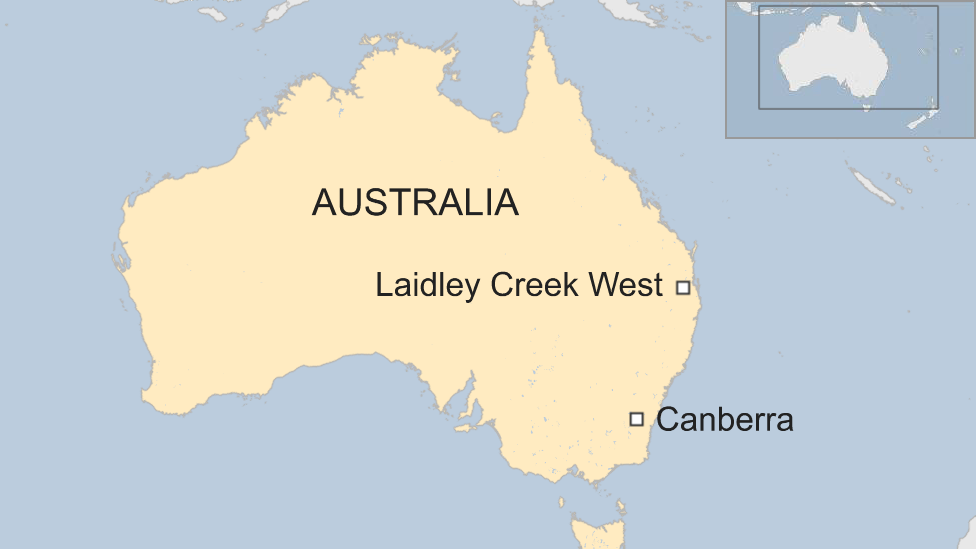Australian police Google Maps blunder 'missed location of body'
- Published

A missing Australian's body could have been found 18 months earlier if searchers had not relied on incorrect Google Maps data, a coroner has said.
Darrell Simon, 46, was last seen in November 2014 at his partner's house about 80km (50 miles) west of Brisbane.
Search crews scoured Mr Simon's nearby rural property at the time, but his remains were not found there until May 2016. His death was ruled a suicide.
A printed map used by police showed incorrect boundaries on the property.
It meant that search volunteers covered only about half of Mr Simon's property in Laidley Creek West, said Queensland deputy state coroner John Lock.
"The fact the ground search was conducted over only half the property was very regretful and should not have happened," he said in his report completed last month.

The delay in finding Mr Simon's body had "compounded the grief felt by his family and friends, particularly his father", Mr Lock wrote.
It had also fuelled speculation that Mr Simon had been the victim of foul play, potentially involving a disagreement over money.
"One wonders if Darrell's body was found during the first police search... whether such unhelpful and at times clearly defamatory and untruthful speculation would have even surfaced," the report said.
Mr Lock noted, however, that thick vegetation might still have prevented Mr Simon's body from being found if a search had taken place.
His remains were ultimately discovered by the property's subsequent owners, following a period of drought and the clearing of vegetation.
The coroner's report noted that Google Maps was "less helpful" in determining the property's boundaries than other tools available to police.
Mr Lock recommended that police be ordered to conduct future searches by using high-quality GPS and mapping data, and improve their communications with search volunteers.
Queensland police had already taken steps to address both recommendations, the coroner was told.